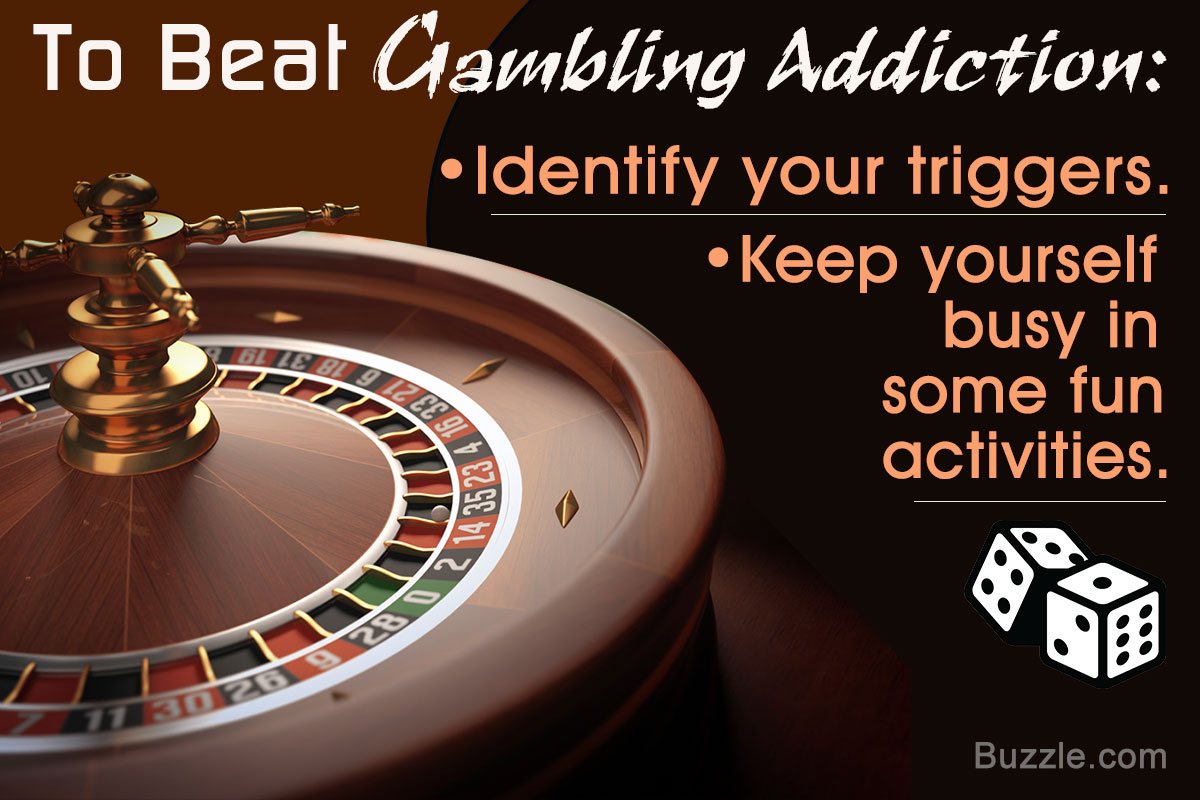
Many problem gamblers go for years without realizing that they are addicted to gambling. WellnessKeen tells you why early diagnosis is crucial, and presents some effective tips on how to stop gambling.
Did You Know?
Las Vegas, the largest gaming market in the US, has the highest suicide rate in America, both for visitors and residents of the city. An abnormal rise in the suicide rate for visitors and residents of Atlantic City was observed only after gambling casinos opened up in the city.
‘Problem gambling’, also known as ‘ludo mania’, can destroy the life of the gambler and also of his/her family members. When a gambler with severe ludo mania meets certain criteria, the condition is diagnosed as ‘clinical pathological gambling’. Analysis of casino customer data may help identify problem gamblers, but casino owners do not share this data for fear of losing their most lucrative customers (may be 25 – 50%). Gambling addiction is referred to as ‘compulsive gambling’ or ‘impulse-control disorder’, where the behavior of the gambler is similar to that of a person who has substance addiction.
When an individual realizes that gambling is destroying his family and social life, he thinks of quitting, but in just a few hours or within a couple of days, he is again found in a gaming zone or casino. Despite being aware of the serious negative consequences, or despite having a strong desire to quit, he cannot stop himself from gambling. He lies to his family and friends, borrows money, and loses control over his mind and behavior. He may lose his job and may commit crimes to get money for gambling. As he spends more gambling, he requires more money to recover his losses. To experience the same excitement, he needs larger wagers or more frequent gambling.
There are chances that he has other psychiatric problems at the same time; for example, substance use disorder, mood and anxiety disorder, personality disorder, etc. Researchers have noticed increased rates of mental health disorders in gamblers with severe ludo mania. Study results show that a gambler who has not been treated for compulsive gambling during his desperation phase is likely to commit suicide. Addiction to gambling at a young age increases the risk of suicide. But studies show that suicide attempts are usually made by older people with problem gambling. Here are some useful tips regarding lifestyle changes to get rid of a gambling addiction.
How to Overcome a Gambling Addiction
Hand Over the Credit Cards to Someone Else
You can’t gamble without money. So, keep a small amount of cash with you, and hand over any credit cards and ATM cards to some responsible family member or friend. This way, you won’t have a ready means of hopping over to the casino and placing bets.
Keep Yourself Busy
Whenever you have a strong urge to gamble, think about the negative consequences to your actions and tell yourself not to gamble. Try to keep yourself busy in some fun activity or anything that you enjoy doing. Laugh, sing, or dance with your friends. Make an effort to divert your mind from the thought of gambling. Keep yourself surrounded with positive people.
Don’t allow another person or event to control your emotions. If you are alone, immediately call someone or meet up with a friend for coffee or dinner.
Gain Control Over Your Mind
See to it that you have very little free time. Don’t allow your mind to wander here and there. Keep yourself engaged in good activities. Yoga, meditation, regular exercise, a walk in a riverside park, etc., can help direct your thoughts and regain control over your mind. You should plan outings with your family, and spend your holidays with friends and family.
Block Gambling Sites
Online gambling is big in present times. If you cannot stay away from the Internet, block all the gambling sites. This way you can avoid all those sports betting avenues and other similar temptations.
Find the Root Cause and Solution to the Problem
Root cause analysis helps look deeper into a problem. It helps find out a genuine solution too. If depression, loneliness, or boredom is the root cause of your addiction, then reading books, listening to music, watching movies, playing a musical instrument, cleaning your car or home, cooking, gardening, playing tennis, basketball, football, going to gym, etc., can help in a big way to divert your attention from gambling. If you think that gambling acts as a stress reliever, then you should follow other methods of lowering stress. Hobbies, yoga, meditation, swimming, exercise, etc., are some of the best stress-busters. If you feel lonely or shy, then join a social group, spend maximum time with family and friends, enroll in an art class or public speaking class. Mountain biking, rock climbing, bungee jumping, or go-kart racing can help you experience the same ‘rush of adrenaline’ as you might be experiencing during gambling.
Build a Social Network
Never stay alone. Find out your old friends, connect with them, make new friends, join a gym or social club, work as a volunteer in social organizations, and help others. This will give you immense satisfaction and keep you busy and your mind diverted in a great way.
Attend a Gamblers Anonymous Meeting
Attending a Gamblers Anonymous meeting and listening to personal stories of gamblers can help change your mindset. You will be able to visualize what would happen to your family when you have no money left. You will think about your children and close ones, and make up your mind to stop gambling.
Make a Decision to Quit
Friends and family members can help you in various ways, but in the end, the decision to quit has to be yours. Admitting you are addicted to gambling is in fact the first step. When you feel an urge to gamble, think about how bad it feels when you lose a lot of money. Write down how gambling has affected your family life in a negative way. Find out when and why you feel an urge to gamble. These days, there are online self-help programs too. Seek help from these programs. Think positive. Write down how you would solve financial problems caused by gambling. Write down how your life will change for the better when you stop gambling. Think how blessed you are that you have a supporting family and helping friends. All these things will help make a decision to quit gambling.
Rebuild Your Self-esteem
If you think that changing a job, house, or even the city can help quit gambling, then just go with the idea. You can start a new life and forget the past. Bad company corrupts good morals. Stay in the company of people who will help you lead a stress-free and healthy life. This can help quash your urge to gamble, and rebuild your self-esteem.
Call the Helpline
Sometimes, willpower isn’t enough. Call the helpline and speak to a trained adviser for emotional support and information. The person will offer free advice and will keep your information confidential. Counseling on the phone can help build confidence, and you may then want to go ahead and get a specialized counselor for yourself.
Fix an Appointment with a Counselor
Timely consultation with a certified gambling counselor is essential to beat the addiction. A highly individualized program can help address specific issues and can speed up the recovery process. Treatments for gambling addiction and substance misuse are almost similar. Cognitive behavioral therapy works great for all addictions.
Get Admitted to a Rehabilitation Center
Quitting problem gambling is relatively easier, but maintaining the recovery (avoiding tempting situations that one may have to confront every now and then, regaining control over mind, making a permanent commitment to stay away from gambling) is quite difficult. The pleasant, family atmosphere of the rehab and recovery center where you will immediately feel at home can help you learn how to avoid a tempting environment. There, you will be able to find more exciting and enjoyable activities. You will be able to explain your problems to someone who would be available 24/7. You would be able to talk to someone who will listen to you without passing judgment.
As the Internet has made gambling more accessible, there has been a significant increase in the number of problem gamblers, especially women. According to the National Council on Problem Gambling, there are about 6 to 8 million problem gamblers in the US. Consistent efforts, proper treatment, and support of family and friends play an important role in stopping a person from gambling.









